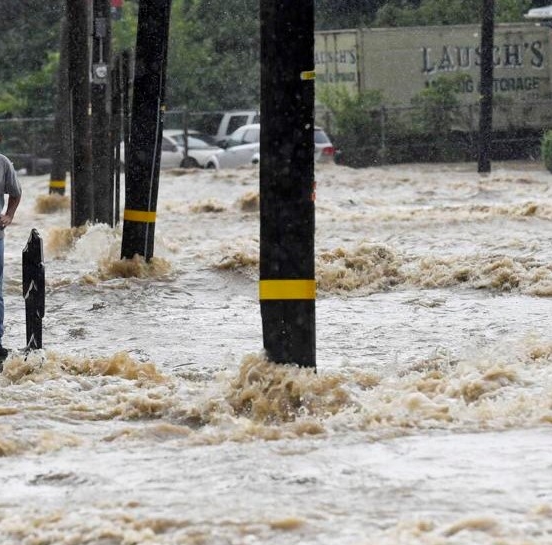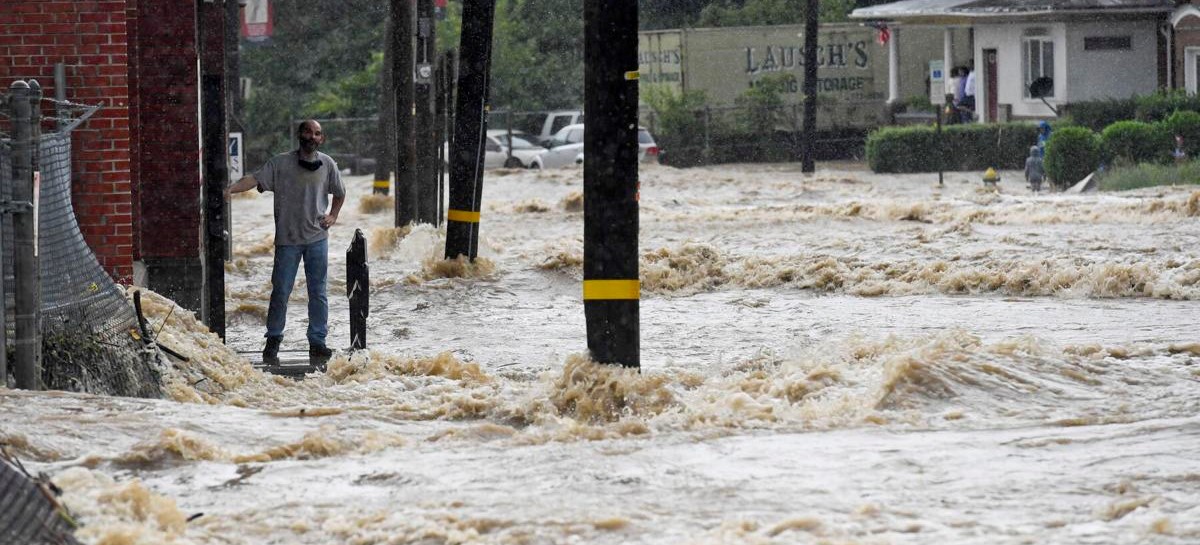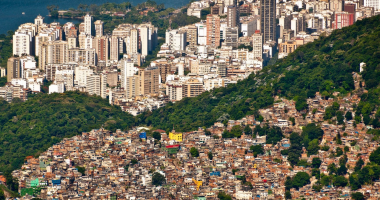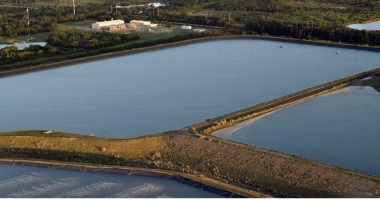Climate, Health and Equity Brief
Fires, floods and frightening heat
August 7, 2020

The Climate, Health & Equity Brief is GMMB’s take on the week’s news on the current impacts of climate change. If you haven’t subscribed yet, you can do so by clicking here.
Hot Topic: Overlapping disasters. Two extreme weather events have taken hold in the U.S. this week even as the coronavirus pandemic continues to rage across the country. Following recent fires in Arizona, Nevada, Oregon and Utah, the Apple Fire in Southern California’s Cherry Valley has already burned more than 28,000 acres and forced nearly 8,000 residents to evacuate. The blazes have produced plumes of smoke that rise 30,000 feet and are impacting air quality up to 300 miles away, potentially increasing the risk for respiratory complications and severe COVID-19 cases among those exposed to the smoke.
On the East Coast, Tropical Storm Isaias has caused at least twelve deaths and left millions without power following widespread tornadoes and flooding. Isaias is already the ninth named storm in the Atlantic so far this year, a feat that has never been reached so early into the U.S. hurricane season. A new report estimates that the U.S. is on track for 24 named storms this year—nearly double the annual U.S. average.
Meanwhile, another study found that as climate change continues to speed sea-level rise, extreme high tides and massive storm surges will become much more frequent and intense, permanently submerging many low-lying coastal areas and putting tens of millions more people and trillions of dollars in assets at risk. Yet another study found that extreme heat could kill more people than all infectious diseases combined this century without fast action to reign in emissions and move to renewable sources of power.
While extreme weather continues to intensify and become the rule rather than the exception, one study out this week provides a silver lining. Researchers at Duke University found that limiting warming to 2°C over the next 50 years would result in enormous benefits to the health of Americans and prevent 4.5 million premature climate-related deaths. The question is, will we rise to meet that challenge?
—Matt & Traci, GMMB
Health
Newly released research found that 2020 could be the second most active storm season on record, with 24 named storms forecasted in the Atlantic this hurricane season, nearly double the current average of 13 per year. (The Weather Channel)
Nearly 8,000 Southern California residents have evacuated as the 28,000 acre Apple Fire rages following heatwaves and intensifying drought conditions in the state. (The Washington Post)
Tropical Storm Isaias brought tornadoes and flooding to the East Coast this week, leaving millions without power and causing at least twelve deaths. (The New York Times, The Weather Channel)
A recent study found that as sea levels continue to rise, coastal storms and extreme high tides could reach further inland, threatening coastal areas and putting tens of millions of people at risk. (The New York Times)
A new study warns that fatalities from extreme heat could eventually surpass the death toll from all infectious diseases combined without a reduction in planet-warming emissions. (The Guardian)
According to a new study, 4.5 million premature climate-related deaths could be prevented in the U.S. over the next 50 years if Paris Climate Accord goals are met. (The Hill)
Equity
A recent U.S. study revealed that disadvantaged neighborhoods that were among the most polluted 40 years ago are still the most polluted today, despite an overall 70 percent drop in pollution across the country. (Reuters)
The state of New York has announced a $1 billion initiative that will increase clean and efficient energy access among low-income households in the state and ensure an equitable transition to a green economy. (Grist)
Politics & Economy
Just four weeks after the Dakota Access pipeline was ordered to shut down, a federal appeals court reversed the decision, allowing the pipeline to continue operation pending review over the need for an additional environmental assessment. (The Wall Street Journal)
Action
Oil giant BP has announced initial plans for a green energy transition, which will include cutting oil and gas production by 40 percent and increasing renewable investments to $5 billion annually. (The Washington Post)
Ford-owned electric scooter company Spin has committed to cut more carbon emissions than it creates by 2025 by recharging scooters with renewable energy and transporting them with clean air vehicles. (Axios)
Kicker
As we approach the International Day of Indigenous People this Sunday, take a look at this award-winning video short on a Filipino indigenous community that fought back against environmental degradation of their land.
“When we take care of the land, we take care of us. If we destroy this land, we destroy ourselves.”
– Chief Jackie Thomas, Saik’uz First Nation

)





